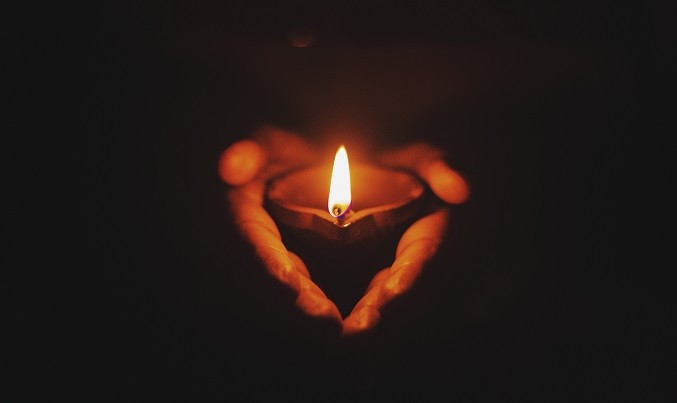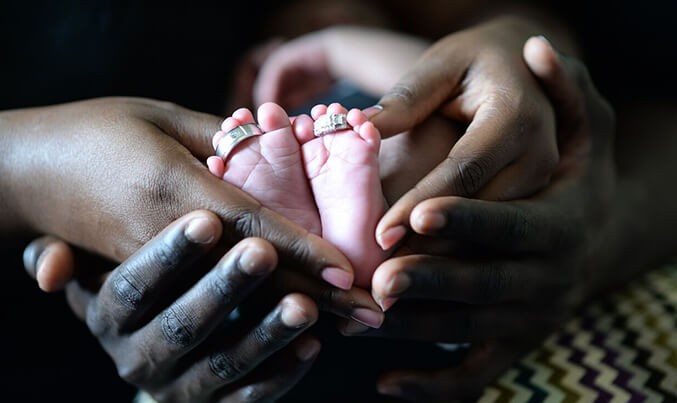Social sector professionals in trying circumstances find succour in faith, as spiritual practices gain traction, finds Swati Sanyal Tarafdar
More than thirty years ago, while working with women considered lower caste in the infamous Chambal district in India, Blessina Kumar, then 21, was routinely threatened with rape. Now in her 50s, as an International Public Health Consultant and CEO of the Global Coalition of TB Activists, her challenges have changed and so have the stress factors. “Not a single day passes when I don’t find myself crying with another calling for help. Seeing their difficulties, we get affected in various ways,” she says.
Witnessing human suffering from close quarters can cause depression in some, while bitterness or anger in others. It upsets people and erodes motivation. Experienced development and impact professionals admit to using psychological therapy and counselling, as well as calming procedures such as meditation, chanting and reading scriptures to find context and meaning to their work, and to find relief from stress.
Can religion, faith, and spiritual practices help tackle mental health issues stemming from our daily witnessing of human suffering?
Faith inspires
A research titled International Religious NGOs at The United Nations published in The Journal of Humanitarian Assistance recorded that of the 3,183 NGOs with consultative status at ECOSOC (Economic and Social Council) of the United Nations, 320 are religious—i.e., stated that religion inspires and motivates them.
While working with aid professionals in Kenya, as a part of her doctoral thesis, UK-based researcher Gemma Houldey observed how faith and religion help combat overwhelm and stress. In her thesis titled, The Vulnerable Humanitarian: Discourses of Stress and Meaning-Making Among Aid Workers in Kenya, she recorded:
“… many of my Kenyan and Somali informants appeared to brush off certain difficulties in their working lives, and this was partly attributed to their religious faith. “God’s will” was both rationale for doing the work, and a way of gaining strength from its challenges.” Houldey notes their faith also helped them face security threats without fear.
A monk from a Ramakrishna Mission-inspired organization, who doesn’t want to be identified, agrees. “We are executing God’s will. The love and fear of God help us stay focused and accountable,” he says.
Many of the sources, including Kumar, pointed out the problems with organizations mixing religion with development work, especially in a heterogeneous community comprising followers of different religions.
“They (religious organizations) make you do things out of fear and that's what leads to fanaticism,” Kumar says.
Faith unites
Over Skype, Houldey tells iMPACT that conducting religious rituals can reduce the structural gap development professionals should ethically maintain from their beneficiaries. Though not recommended, in certain special situations of conflict and abuse, observing religious practices together helps build mutual trust. It’s beneficial. In Kenya, which stands 122nd out of 152 countries in the Global Inequality Index, aid professionals mixed more with people from a similar religious background, probably because they had nowhere to go for entertainment. Religious meetings gave them a sense of community. “I understand the valuable role that the ritual of praying together in a community may play in building trust and bringing both sets of people (aid professionals and beneficiaries) together. There’s a central role that religion also plays in motivating staff, in helping them to rebuild, promote compassion among each other, and this is something we should explore more in the context of the developing sector.”
Kumar agrees. “We find comfort in being a part of a community. In the absence of larger families, we tend to find replacements.”
Faith heals
Faith helps development professionals, especially those who work at the grassroots, to deal with the pain and suffering they see every day. Joy Christina, head of media relations, communications and creative, World Vision India says, “Having something to lean back on definitely helps us on a daily basis. The object of our faith is God, and how I understand God is as someone who has absolute control over everything.” As human beings, we don’t have control over most things. The belief that there’s a God gives us a lot of hope, she explains.
For 18 years now, a devout Jones Manikonda counsels people at the grassroots against addiction, abuse, and violence, in Andhra Pradesh, India. “People confide in us, but we have nowhere to go. Religion helps us in rising above our petty interests and staying strong on the path of righteousness,” she says.
Knowing that there’s a higher power that corrects everything, even those that are beyond our mortal limits, provides relief. “I speak at the highest level, with the most powerful. But I can do so much. For what’s beyond me, in my quiet moments, I hand them over to a higher power,” Kumar says.
The key, though, is belief, says Joy Christina. “Prayers and meditation help, but doing these mechanically is very different from actually believing in something.”
Spiritual practices soar
Of late, organizations have started to promote spiritual practices such as mindfulness and other forms of meditation, especially within secular contexts.
Houldey, who doesn’t follow a religion, accedes the healing power of spiritual practices. “Meditative practices supported me, brought me back to myself, and allowed me to touch deeper into a source of humanity,” she says.
Manikonda says both religion and spirituality help. “If religion is the body, spirituality is the soul. Spiritual practices help us stay calm and strong against adversities, our religious grooming and values help us take the right decision,” she says.











